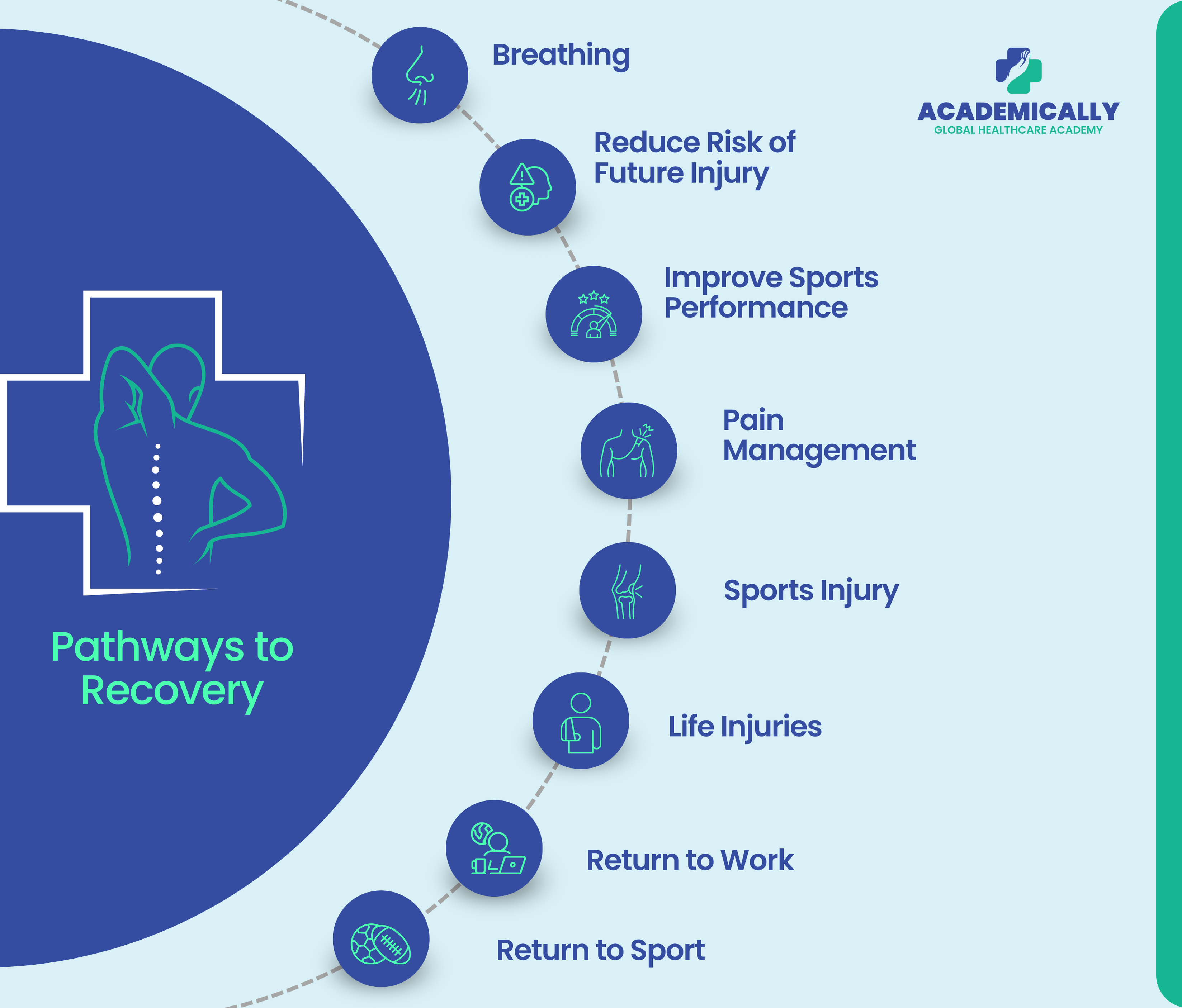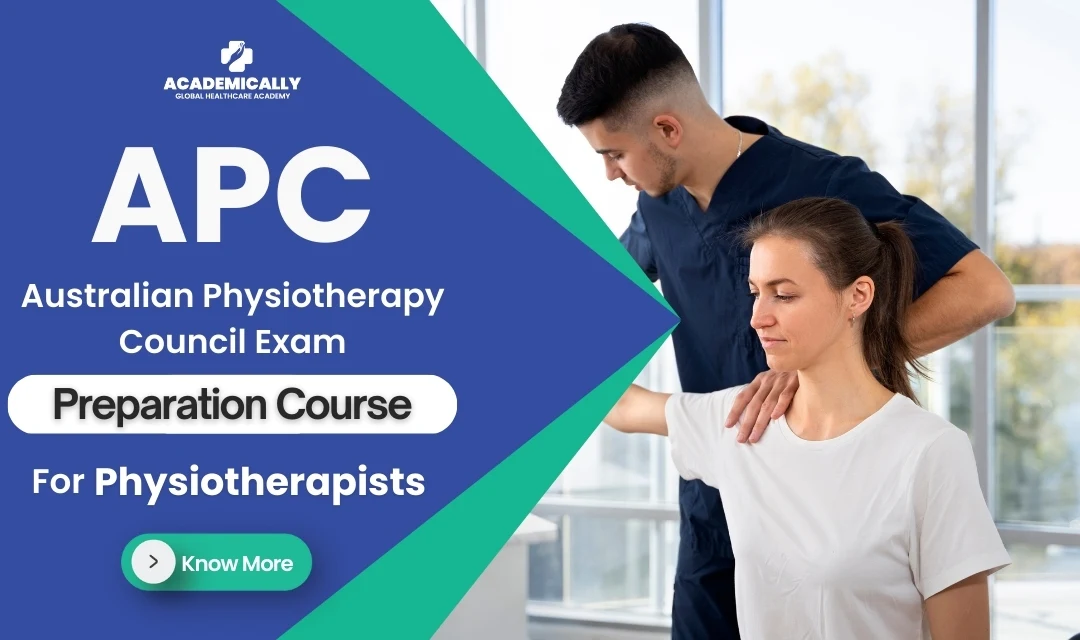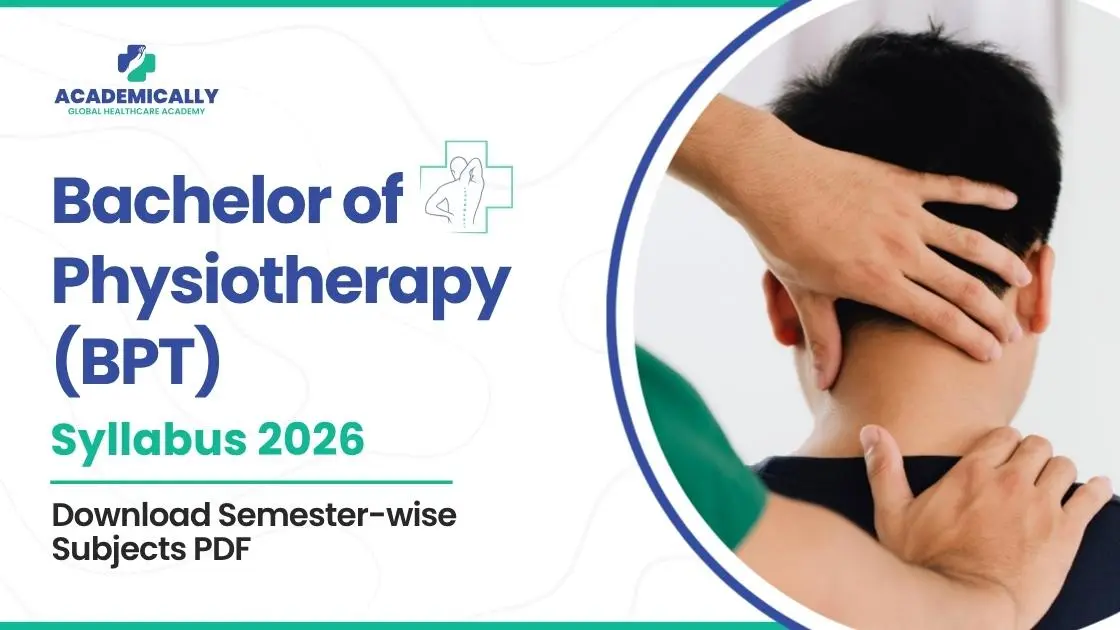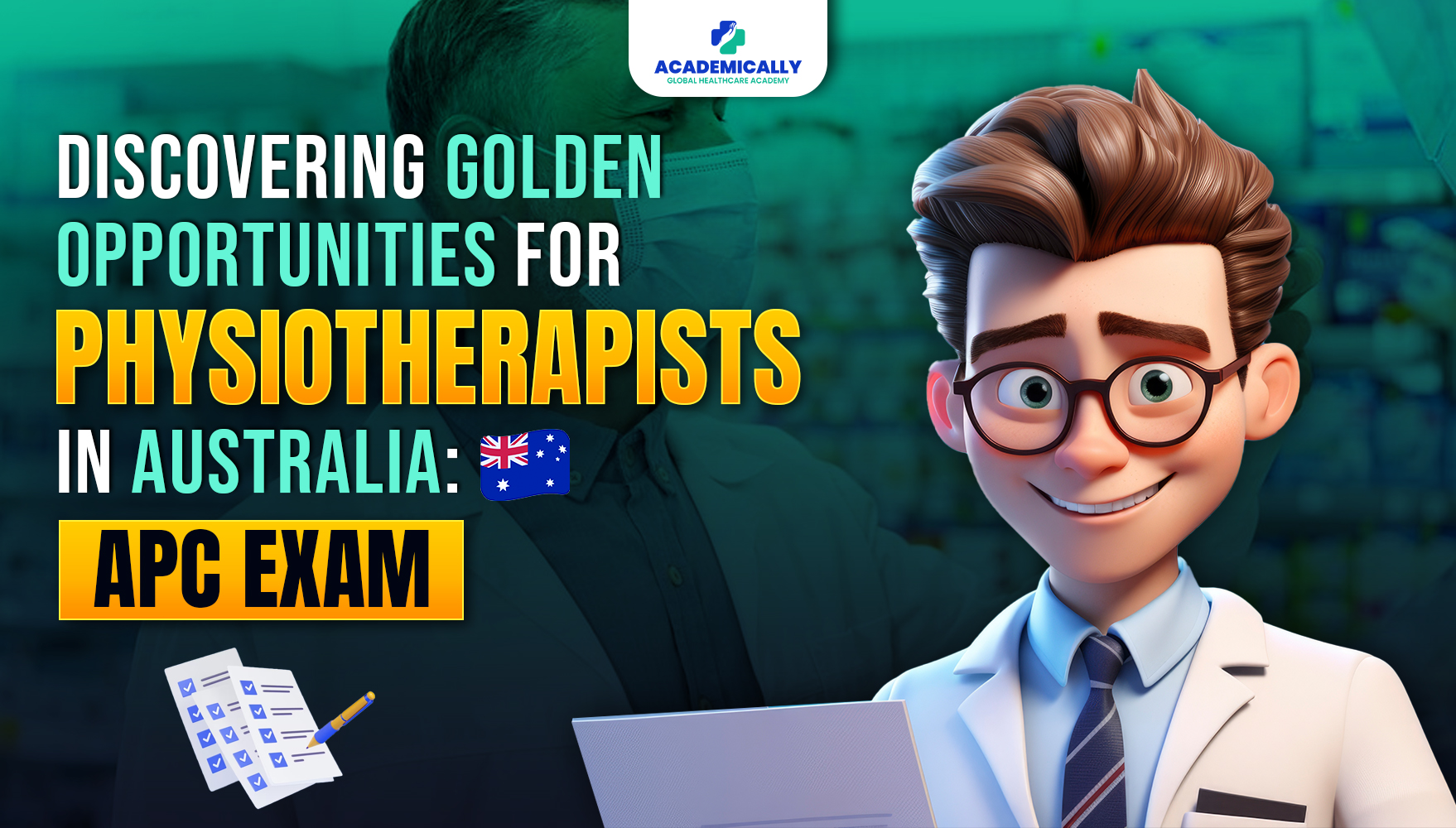Imagine this scene… You walk into a hospital ward wearing your first-ever white coat. A patient smiles at you with hope. You gently help them stand and teach them a simple exercise that can change their life.
This is physiotherapy. And BPT is where your journey begins.
In India, the Bachelor of Physiotherapy has become one of the most trusted and fast-growing healthcare degrees. Students love it because it blends
Science | Hands-on treatment | Human connection | Real impact
But before you choose this path, it helps to understand one thing clearly:
What will you study in your four years?
What skills will you gain each year?
And how does the curriculum prepare you for real patients?
This blog breaks down the official BPT syllabus in a simple, year-wise format. Whether you're a student, parent, or counsellor, this guide will help you understand the full picture.
Let’s begin your journey.

Course Overview
| Particulars | Details |
| Duration | 4 academic years 1-year rotatory internship |
| Medium of instruction | English |
| Goal | Train competent physiotherapists who can Assess Treat Rehabilitate patients Across age groups and conditions |
The syllabus is structured so that you begin with the basic sciences. Then you move into physiotherapy specialities. And finally, complete your clinical practice and rehabilitation courses.
What the Syllabus Aims to Do
- Teach basic medical science similar to MBBS.
- Build practical skills
- Exercise therapy
- Electrotherapy
- Manual therapy
- Train clinical reasoning and patient handling in real settings.
- Prepare graduates for independent, safe practice and teamwork.
BPT Syllabus - Year-wise Subjects
Universities may vary slightly. This table shows the subjects commonly taught year by year in competency-based BPT curricula used by Indian health universities.
Year 1 - The Foundation of Medical Science
You learn how the human body is built and how it works.
Subjects:
- Anatomy
- Physiology
- Biochemistry
- Introduction to Physiotherapy
- Basics of Exercise Therapy
- Fundamentals of Electrotherapy
- Pathology
- Psychology
- Sociology
- English Communication
- Practicals: Anatomy, Physiology, Biochemistry, clinical orientation
In addition, the first year will also include subjects in Information Technology and Fundamentals of the Healthcare Delivery System in India (FoHS).
Year 2 - Biomechanics and Medical Conditions
Now you start learning how the body moves and what affects that movement.
Subjects:
- Pathology
- Microbiology
- Pharmacology
- Biomechanics and Kinesiology
- Public Health & Health Promotion
- Emergency Care and Life Support Skills
- Advanced Exercise Therapy
- Advanced Electrotherapy
- Practicals: Electrotherapy, Exercise Therapy
- Clinical postings: Hospital exposure
The second year will also touch on the subject of Yoga and Systems of Medicine.
Year 3 - Paediatrics, Neuro and Manual Therapy
You move deeper into specialities.
Subjects:
- General Medicine and Paediatrics
- General Surgery
- Orthopedics
- Physiotherapy in Neurological Conditions
- Physiotherapy in Orthopaedic Conditions
- Physiotherapy in Pediatric Conditions
- Physical & functional Diagnosis & Prescription
- Manual Therapy Techniques
- Research Methodology (intro)
- Regular OPD/IPD postings
- Physiotherapy in Surgical Conditions II
- Sports Physiotherapy
- Community Physiotherapy
- Long-term clinical rotations
During your third year, you’ll also get introduced to Research Methodology, Biostatistics and Evidence-Based Practice.
Year 4- Specialisations and Project Work
Here you shape your interest area, and this part focuses on preparing you for full-time practice.
Subjects:
- Advanced Neurology
- Cardiology
- Geriatric Physiotherapy
- Paediatric Physiotherapy
- Ethics and Professional Practice
- Hospital and Clinic Management
- Advanced Rehabilitation
- Evidence-Based Physiotherapy
- Electives
- Pre-internship practical training
- Project / Dissertation
Compulsory Internship (1 Year)
Your internship is where everything comes together. You work with real patients under supervision. Most postings include:
- Medicine
- Surgery
- Orthopaedics
- Neurology
- Pediatrics
- Cardio-Respiratory
- Community Physiotherapy
- Rehabilitation centre
- Outpatient Physiotherapy Department
You will maintain a logbook and complete competencies in accordance with official norms.
Practical Training and Assessment
- Practicals and bedside teaching are a large part of the course.
- Skills are assessed by viva, clinical exams, and logbooks.
- Many universities now use a competency-based approach. This means students must show specific skills before passing.
Why This BPT Syllabus Works So Well
- Builds strong medical knowledge
- Develops hands-on skills from day one
- Creates confident, ethical physiotherapists
- Prepares you for hospitals, sports, clinics, home care, and rehab centres
- Matches national standards for physiotherapy education in India
How to Use The BPT Syllabus Effectively
- Bookmark your year-wise subject list: know what you’ll study ahead of time.
- Create a study map. For each subject, list chapters and set weekly goals.
- Use practical checklists. List out key skills you must master.
- Begin a clinical logbook early. Note down each patient case, interventions used, outcomes, and reflections.
- Start your project work or elective planning from mid-year 3 or the beginning of year 4. This way, you have time to prepare.
- Stay updated. Universities may update syllabi or regulations. Always refer to your college’s latest official PDF.
Start Your BPT Journey
BPT is one of the most rewarding paramedical degrees in India. The syllabus is designed to make you confident and job-ready. Your aim should be to study consistently. If you enjoy working with people, you can build a meaningful career that impacts lives every day.
The BPT syllabus focuses on
- Medical basics
- Therapeutic skills, and
- Clinical practice
And if you have already completed your BPT and are looking at your future, wondering where it will take you, we have just what you need. Australia needs physiotherapists urgently. This is your calling to start a global career in physiotherapy. Take a look at our Physiotherapist APEP Exam Preparation Course and start your journey.

Physiotherapy is the need of the hour. Make your journey from a student to a professional easy with Academically.





